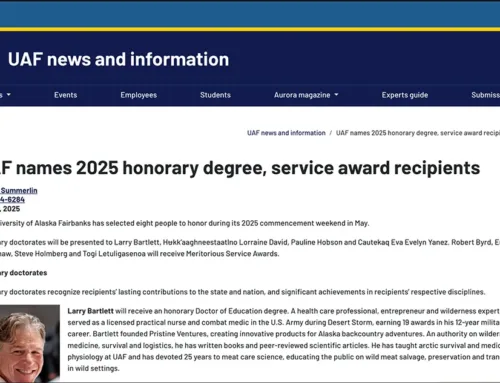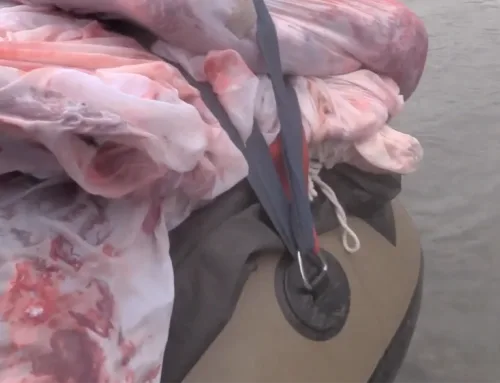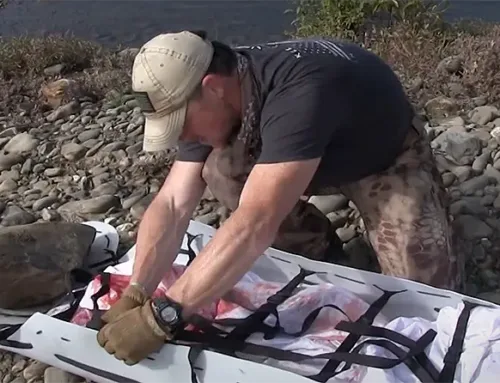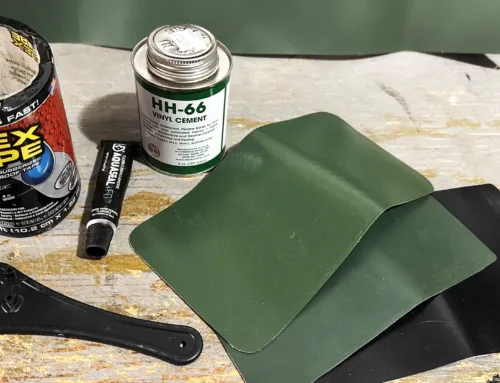Rifle cleaning solutions, reloading benches and storage containers mark the ebb of Alaska’s fervor and the sharp beginning of its long cold winter. Savvy hunters will now begin that long process called planning, which transforms a dream hunt into a tangible adventure adorned with memorable events. Indeed, experienced Alaska hunters will soon be placing calls and researching next year’s hunts. I’m sure if you’ve performed exhaustive coverage of all the particulars, you know how incredibly important it is to reserve your flights and purchase your maps months in advance.
Don’t let hunting season 2001 arrive to find you scrambling through the Yellow Pages hoping to find an available air charter service, or kicking yourself for not applying for that special moose or sheep permit. Begin your planning now, and enjoy the benefits of a well-planned and executed hunting adventure next fall.
Determine Your Hunting Budget
This task should be referred to the better-looking member of the hunters’ family…usually the wife. So once you have the go ahead, put this figure at the top of your writing pad. Next, begin subtracting the cost of essential expenses, such as food, transportation, equipment rentals, clothing and shelter. After the fruits of the trip are well taken care of, you can then develop your slush fund for non-essential, nice-to-have items, such as your favorite book, new spotting scope, etc.
Plan the Particulars
Once you have an idea of where you wish to hunt, read the hunting regulations for the area in which you’re interested. This will help identify when you can legally hunt that region for the game your most interested in pursuing. Determine how many days you’ll be hunting and this should help plan for how extensive the food cache will be. Contact the land managers for the area you’ll be hunting. Ask them the most economical ways to access that region. This will help you determine the need for commercial transporters, air and land. Next, brainstorm costs for such things as food, necessary clothing, license, tags, equipment rentals, etc. This will help materialize a price tag for your adventure.
Contact Your Charter Service
Due to the increasing number of Alaska hunters, many charter services are now taking only a select number of clients each year. This practice will only continue to grow as more and more of us find the need for air services. A good habit is to make reservations with a charter service as soon as you have determined when and where you wish to hunt. While most services recommend placing your deposits no later than 6 months out, I have learned that savvy hunters are doing so much sooner these days. I usually begin my hunting plans a minimum of 14 months out, and secure my transportation 10 to 12 months out. Do this to avoid being penciled in at everyone else’s convenience. Most businesses work with a “first come, first serve” motto. Lastly, don’t forget to get your price quote in writing from the charter service. This will eliminate confusion on both ends concerning who said what and when, about whatever.
Assign Each Hunter a Task
To give each hunter a chore, or task, will help prevent one person from bearing the entire burden accompanying a well-planned trip. However, some prefer to do all the planning themselves. While this is absolutely reasonable, it doesn’t hurt to let your comrades go over the logistical plans or scan the food and equipment list for errors or miscalculations. This will only safeguard your adventure.
Know About the Land and People
Research not only the land, but also the people inhabiting the river or lakes you’ll be hunting. As you may know, some native residents are more than protective of their surroundings. While negative encounters are extremely rare, due attention should be paid to finding out the overall disposition of the locals. Most importantly, research every aspect of the land, before going hunting. Purchase small-scale maps, determine access points in and out, locate possible river hazards (if applicable), and locate areas of private land. This will allow you to hunt the area more effectively, as well as help maintain a safe and legal hunting adventure.
Regardless of where you hunt, respect the land and the people around you while hunting. Remember past lectures on Leave No Trace principles and backcountry ethics. Rely on stringent, intensive research, relax and enjoy every aspect your next hunt. Moreover, continue to improve on your next adventure by not making the same mistakes as last year. This will inevitably enhance your hunts for years to come.
-Larry Bartlett
Author / Wilderness Guide




